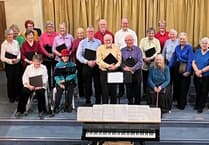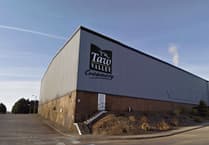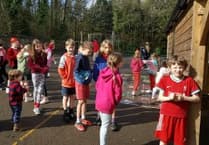IN 2019 I unexpectedly got elected. I’m grateful I did, because it’s giving me a huge insight into the challenges and opportunities in local government.
It’s also made seemingly impenetrable processes clearer. Local (and national) government shouldn’t be exclusive, or complex – it’s for everyone, and everyone should be able to engage. But I know that even some Councillors struggle to understand the processes, finance and language of local government, let alone residents. Through my occasional updates in this newspaper, I hope I can help to make it a bit less of a mystery. So, a few updates:
1. In 2021, my motion asking Mid Devon District Council to support the Climate and Ecological Emergency Bill passed (a motion is a proposal asking the Council to take certain action). The Council duly wrote to our MP’s Neil Parish and Mel Stride to ask them to support it in Parliament. They said they wouldn’t, despite more than 140 MPs and Peers from all major parties doing so. They said it duplicated existing work. It doesn’t. The Bill was drafted by scientists, legal experts, economists and environmentalists. Amongst other things, it seeks for the country to take responsibility for the entirety of its global carbon and ecological footprints (not just those within our borders). It also involves the public far more than existing government plans. You can find out more online at: www.ceebill.uk.
2. At the Council, I Chair the “Net Zero Advisory Group”. We recently discussed and debated a series of actions to prioritise and fund as part of our climate action plan. We passed our recommendations on to the Environment Policy Development Group, which a couple of weeks ago agreed to these “potential additional budget requirements”. This will now progress to Cabinet / Council for discussion and decision as part of the budget-setting process. I know there are financial pressures and competing priorities for Councils (more on that below). And we will not be able to achieve most of these actions right now without external funding. But Council budgets have been hollowed out for years, and by the sounds of things, will continue to be. And so we need to find a way to invest in climate (and other) work anyway. The government’s third five-yearly assessment of risks from climate change was published last week. The costs of acting now look modest compared to the mounting costs of further breakdown.
3. Before I was “removed” from my position as Cabinet Member for Climate Change, I instigated and worked on the creation of MDDC’s new “Sustainable Mid Devon” website: https://sustainablemiddevon.org.uk/ . The website is a simple one, but my intention was to provide a place to share updates on the Council’s climate work, signpost people to useful resources, and share local events and initiatives. Under the community tab, you can find an interactive map of local groups and resources. If you’d like to be featured on this map, you can get in touch via the website (or via me).
4. Following a trial, MDDC’s Environment PDG has recommended we move to three-weekly waste collections, with residents being given black wheelie bins to store waste (or alternatives where this is not suitable). Levels of recycling increased during the trial. Moving to this schedule reduces costs and carbon emissions, too. A final decision will be made by Cabinet.
Finally, and more broadly - at the Council, the four “Policy Development Groups” (Environment, Economy, Homes and Community) have been set a "challenge" to find £500k of the roughly £1million (recently down from £1.4m) savings we need to make in the 2222/23 budget.
We’re being asked to "embrace" this challenge. It made me think of Challenge Anneka; the 80s/90s TV programme in which Anneka Rice would be challenged to do random acts of kindness in a short space of time, like build an orphanage in 48 hours. But being challenged to find cuts from already lean Council budgets is much less enjoyable than “Challenge Anneka”.
There’s less kindness and less energy. (There’s also thankfully less Lycra).
During November, the Council undertook a Residents’ Survey. Part of that survey included specific consultation on the 2022/23 budget. Two things that residents feel are priorities when making spending decisions are climate change and affordable housing (alongside providing basic statutory services). But at the moment, our climate-related work comes from external funding, which we have to invest already-stretched time and expertise bidding for.
I get told that this is a time for making cuts, not making investments. And so, future climate debt grows, and hope in the current form of local government grows dimmer. I think we need to rethink how we set Council budgets.
How do we make spending a win-win for Council budgets, nature, economy, community, future generations?
My experience so far makes me suspect this is a long way off if we continue with current processes (and with our current government). One thing I’m doing via our Scrutiny committee is to propose we explore “Participatory Budgeting” as one way to rethink the process of budgeting.
It’s a process by which residents are given control of part of a budget, and - through research, advice, presentations, voting, debate - make informed spending decisions. It’s been used successfully in such diverse places as Tower Hamlets, Scotland and Brazil. We can’t go on with a handful of (sometimes not very well informed) Councillors being "challenged" to find spending cuts each year from an already lean budget.
Participatory Budgeting might be one way forward. Or it might not be. We’ll look. Of course, we need proper government funding for all sorts of things. But we can make some changes ourselves, too.
We “create” processes - we’re not held hostage by them. If it’s a process that’s no longer helping our communities and environment thrive, we need to rethink it.
Cllr Elizabeth Lloyd (née Wainwright)
Sandford and Creedy Ward
Mid Devon
(Green Party)




